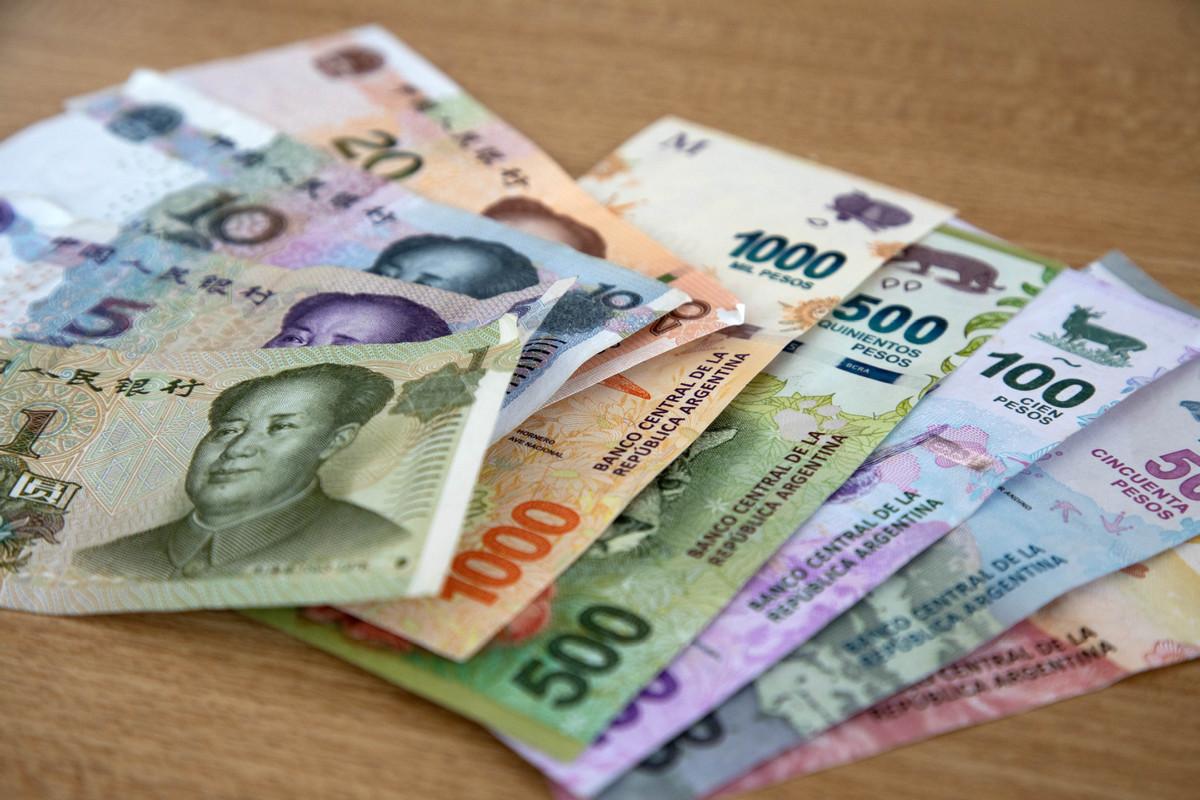
Argentina has decided to shift from the US dollar to the renminbi for all settlements of imports from China, a win-win development that will help Argentina strengthen its foreign exchange reserves and boost the renminbi’s global profile, experts said on Thursday.
Starting from May, Argentina’s imports from China will all be settled in renminbi, instead of the US dollar, said a statement published on Thursday by the official WeChat account of China’s embassy in Argentina.
This will help Argentina bolster its foreign exchange reserves, maintain its scale of imports and facilitate bilateral trade with China, the statement said, quoting Argentina’s Economy Minister Sergio Massa.
Around $790 million of monthly imports is expected to be paid in renminbi, which will help reduce the demand for US dollar payments and have a positive impact on the country’s foreign exchange reserves, according to an Argentinian government statement.
The move came as Argentina is suffering from currency depreciation amid strikingly high inflation. The International Monetary Fund forecasts that Argentina’s inflation rate will reach 98.6 percent this year.
Using the renminbi in trade settlements with China will help Argentina stabilize its economy by not only saving US dollar reserves but also reducing the currency exchange risks facing foreign-trade companies and boosting the country’s trade growth, experts said.
“For Argentina, whose currency has been plagued by strong volatility, switching to the renminbi to settle its trade with China — its second-biggest trading partner — is obviously making the (currency exchange) process more cost-effective and shortening the trade cycle,” said Hong Hao, chief economist at GROW Investment Group.
The move also marks further progress in the internationalization of the renminbi, whose share of China’s cross-border payments and receipts has surpassed the US dollar to reach 48 percent in March based on Bloomberg’s calculation, Hong said.
Liu Chunsheng, an associate professor of international trade at the Central University of Finance and Economics, said the renminbi’s expanding use in Argentina will help strengthen the credibility of the Chinese currency, which may encourage further global use of the renminbi.
International use of the renminbi has gained traction this year, as the currency registered a record-high share in Russia’s currency trading in March, while China and Brazil have agreed to strengthen trade in local currencies.
Underpinning this trend is the renminbi’s value stability and the improved infrastructure for cross-border renminbi usage, Liu said, adding that drastic changes in US monetary policy have made more countries accelerate reducing their reliance on the greenback.
“The renminbi neither intends to nor is positioned to challenge the dollar’s dominance. Yet the world indeed needs a more diversified payment and settlement system to reduce risks given the current complex, unstable global economic environment,” Liu said.
Supportive of Argentina’s efforts to maintain economic and financial stability, China is willing to engage in closer local currency swap cooperation with Argentina and to facilitate the functioning of renminbi clearing banks in Argentina, said Zou Xiaoli, Chinese ambassador to Argentina.
According to the embassy, the government of Argentina will more actively leverage its currency swap with China, which may help Argentina save foreign exchange expenses worth about $4.4 billion in the coming months.



